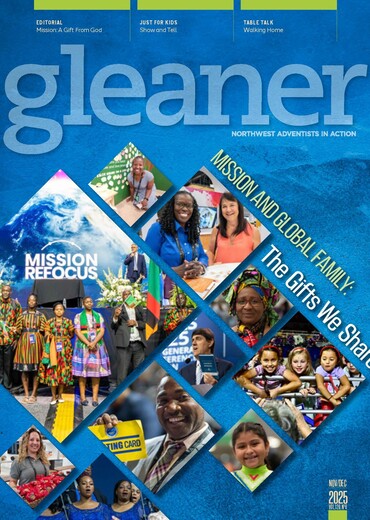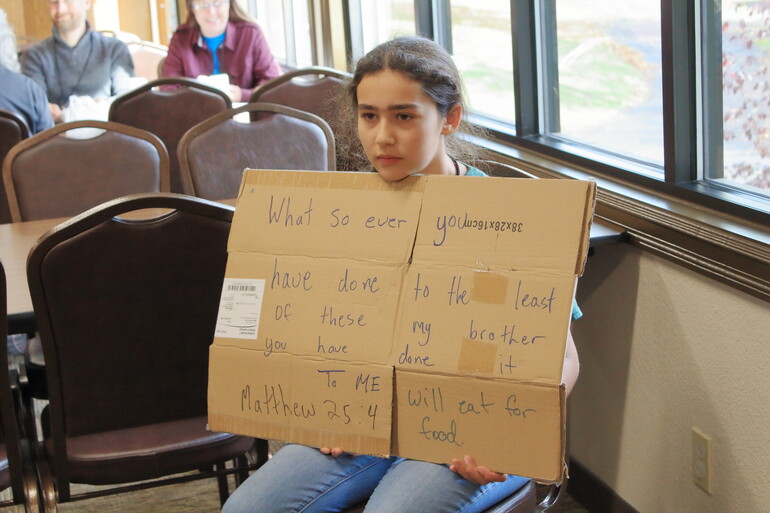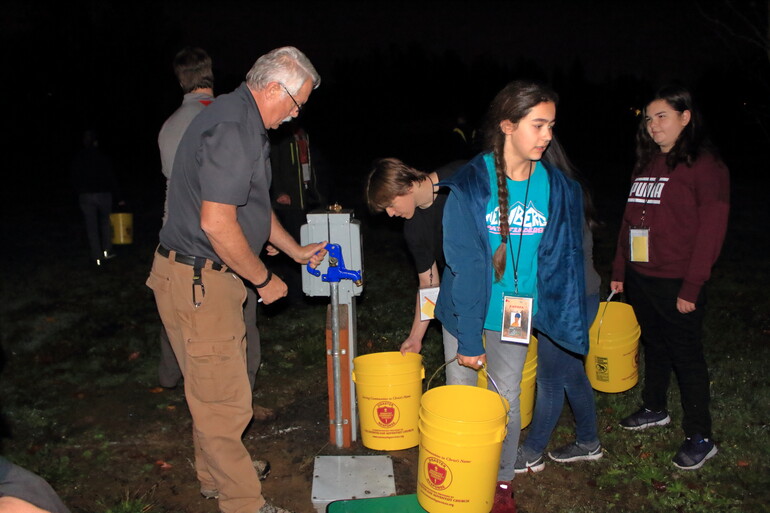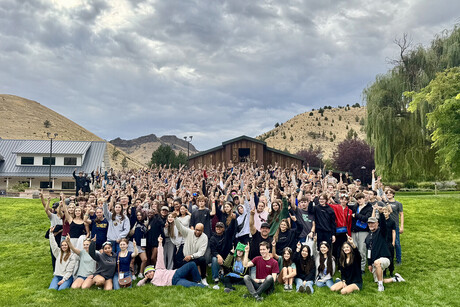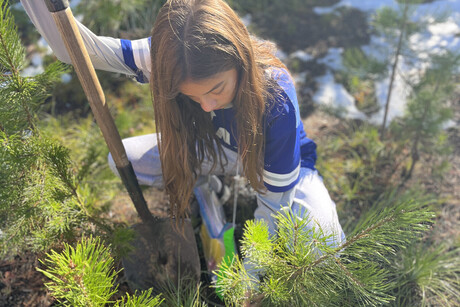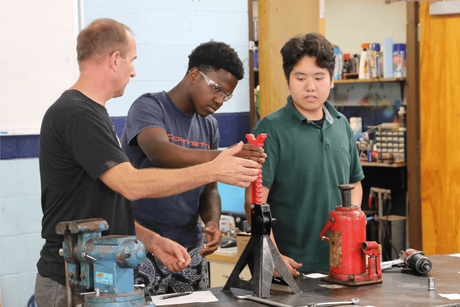Fifty teenagers squirmed nervously in their seats. Something was different, but none of them could put their finger on it just yet. Their adult leaders were being purposely vague about the events about to take place. The teens knew just one thing: This was not the annual Oregon Conference Pathfinders Teen Ministry Training Weekend they had grown accustomed to.
For one thing, the venue had changed. Usually held at Big Lake Youth Camp near Sisters, Ore., this year’s experience was held at the Conference Office at Gladstone, Ore. Instead of assigning us to a cozy cabin in an idyllic mountain setting on the lake, event staff instructed us to put all our sleeping gear into large, black trash bags and pile it all up in the corner of the expansive conference room until they were ready to tell us just what was going on.
In Their Steps is a program designed by Adventist Development and Relief Agency (ADRA) to bring awareness to teens through a variety of multimedia presentations and activities to teach them (and us!) about hardships faced by others around the world. As the evening went on, we soon found out we were assigned new identities for the next 24 hours. Each identity had levels marked with up to four squares each for food, water, education and human rights. Some people would only have one, while others had four, and everything in between. Our characters had a backstory that gave us a little insight into what someone in another country might have to go through in their daily lives.
At dinner, we discovered that people with one square for food could only have one scoop each of rice and beans, and three vegetables — not a whole vegetable either. A slice of cucumber or a carrot stick counted as one vegetable. Characters with two squares received double that amount, and three squares got triple. A character with four squares was lucky — they were able to eat all they wanted from a different table piled with a full pasta dinner.
Poverty, lack of food and distribution of wealth vs. population were just a few of the things we studied. When it came time to prepare our sleeping arrangements, we found that our identity’s backstory explained their living quarters. One person might have just a blanket on a dirt floor, embodied by a piece of cardboard lying on the classroom floor. Someone else might have a straw mattress on the floor, represented by a mattress from the camp cabins. Another could have a cheap mattress on the floor, which meant camp cabin mattresses piled two deep. The privileged ones had a regular bed mattress all to themselves.
We woke the next morning, dismayed to find no running water in any of the sinks or water fountains. (Thankfully they took pity on us and left the water to the toilets on.) The staff hustled us a quarter of a mile over the hill in the predawn darkness, where they provided us with yellow 5-gallon water buckets. Each person had to haul water from one end of the grounds to the other, depicting the struggle families have in other countries where there isn’t always access to clean water. The less water our character had available according to our identity cards, the more we had to haul.
Once we had all completed our water task, we went back over the hill to learn more about the clean water issues in the world. Staff informed us we weren’t all going to have equal access to water, dictated by the identity cards hanging on lanyards around our necks. We were given water cards that could be turned in at the “water well” where we could fill up our water bottles at certain times of the day until we ran out of cards.
After a meager fare of thick vegetable stew for lunch (unless you were one of the privileged characters, who again partook all they could eat of a hearty meal), everyone headed out into the overcast afternoon for a game. This game had a purpose: to reinforce what we had learned over the previous 20 hours about human rights, access to health care, opportunities for education, and the lack of food and clean drinking water around the world.
We set out around the Oregon Conference campus, winding our way between trees, up and down hills, and behind buildings as we searched for the hidden sites of the quizzes we were to take. It wasn’t as easy as just finding the quiz masters however. Scattered along the roads and around every corner lurked a sentinel determined to make this a little more difficult.
I was doing well; I found the first quiz and passed it easily, but failed the next one that I found. The interrogator sent me away, so I went searching for the next one. The overcast skies had turned to drizzle. As I tiptoed between the pillars surrounding the inquisitor’s hiding place, a sentry held up her hand. “Stop!” she declared sternly. Pointing back down the hill, she ordered, “Go to jail.” My shoulders slumped, and I turned away dejected.
I had just one human right square on my identity card, and that meant the longest time sitting in the “jail” of benches lining the porch outside the cafeteria. Eventually they released me, and I was able to continue my quest to pass all four of the quizzes.
The gray sky opened and it began raining harder. I saw other people with various degrees of human rights being forced to crawl on their hands and knees for a length of time, or some other menial chore, while others were let go with a “have a nice afternoon” based on their papers. A guard stopped me and, because I am female, insisted I cover my face. About a third of the people in attendance managed to get signed off on all four quizzes, and only about 10 percent of those were in the lowest societal status, due to the harassment from the patrols. I was one of only three in the lowest status who accomplished the task.
As the weekend wrapped up, I was able to read the feedback turned in by the teens. I was pleased to see many of them recognized they have much to be grateful for. A central theme ran through the slips of yellow paper, and most of the teens penned heartfelt notes about the compassion they gained through this experience. This is just one part of what Pathfinders is about: developing respect for all of God’s creations, including our fellow men and women.



